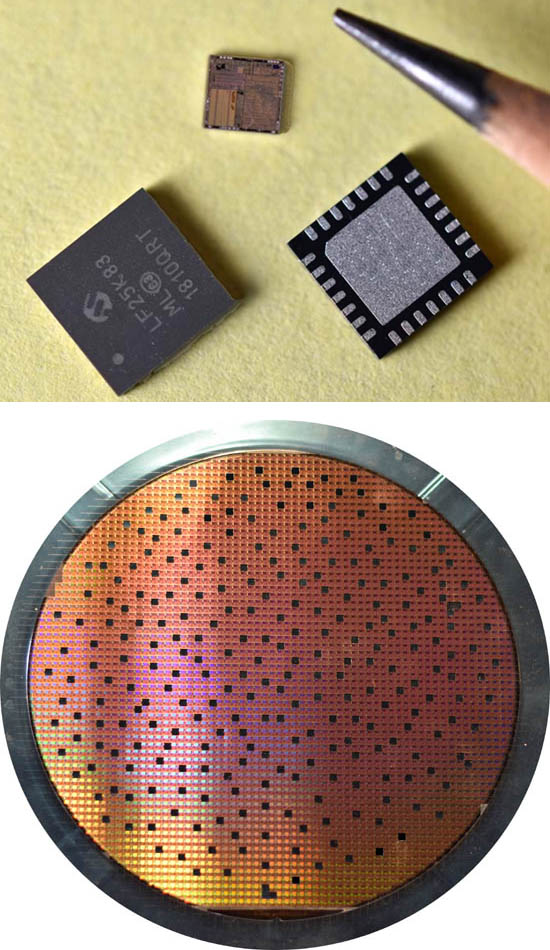Term of the Moment
e-card
Definition: microcontroller
A single chip that provides computer processing in everything from appliances to toys to automobiles. The microcontroller unit (MCU) contains a CPU, storage, memory and input/output. In the early 1970s, Texas Instruments developed the first microcontroller.
First System on a Chip
The microcontroller (MCU) was actually the first system on a chip; however, today's system-on-chip (SoC) category is much more sophisticated and can cost hundreds of times more than an MCU (see SoC).
They Don't Get the Publicity
Because MCUs contain small CPUs (8, 16 and 32-bits compared to 64 bits) and cost only a few dollars, they never get mainstream attention like the latest CPUs and graphics processing units (GPUs) do. MCUs are also not state-of-the-art like the chips in smartphones, tablets, computers and servers (see chip feature size). In addition, techies do not buy the latest MCUs to upgrade their Windows PCs like they might do with CPUs. Instead, microcontrollers are built into billions of products worldwide every year and simply remain there with little fanfare. See embedded system and automotive systems.

The Microcontroller Chip

Motorola 6801 Microcontroller

Are You Crazy?

A Wafer Full of MCUs

An MCU Behind Everything
First System on a Chip
The microcontroller (MCU) was actually the first system on a chip; however, today's system-on-chip (SoC) category is much more sophisticated and can cost hundreds of times more than an MCU (see SoC).
They Don't Get the Publicity
Because MCUs contain small CPUs (8, 16 and 32-bits compared to 64 bits) and cost only a few dollars, they never get mainstream attention like the latest CPUs and graphics processing units (GPUs) do. MCUs are also not state-of-the-art like the chips in smartphones, tablets, computers and servers (see chip feature size). In addition, techies do not buy the latest MCUs to upgrade their Windows PCs like they might do with CPUs. Instead, microcontrollers are built into billions of products worldwide every year and simply remain there with little fanfare. See embedded system and automotive systems.

An MCU contains the CPU for instruction execution, non-volatile storage (flash memory or ROM) for the program, volatile memory (RAM) for processing and input/output control between the CPU, storage, memory and outside world. A clock makes everything go. See CPU, flash memory, ROM, RAM and clock.

Introduced in the late 1970s and very popular, these magnified images show the entire chip (top), most of the 256 bytes of RAM and two bytes at 400x magnification. At 400x magnification, a single byte in today's chips would not be observable.

After touring "inside" the Univac I in the 1950s, imagine someone telling you "this entire computer will be no larger than the lead tip of a pencil some day." These 8-bit microcontroller (MCU) examples are from Microchip in Tempe, Arizona. Used in myriad applications and costing less than 50 cents in quantity, they are actually much more powerful than the UNIVAC I. In 1949, Popular Mechanics said future computers would only weigh "one and a half tons!" See UNIVAC I and technology bloopers.

The MCUs on this test wafer from Microchip Technologies are about a quarter inch square and more powerful than the MCUs depicted on the previous UNIVAC-MCU comparison chart. This shows the bare chip and top and bottom of the finished package. The black holes in the wafer are where chips were cut out for testing. See wafer.

Today's vehicles can have hundreds of microcontrollers, each handling a simple function such as turning a light on to more complicated systems like the ones above.